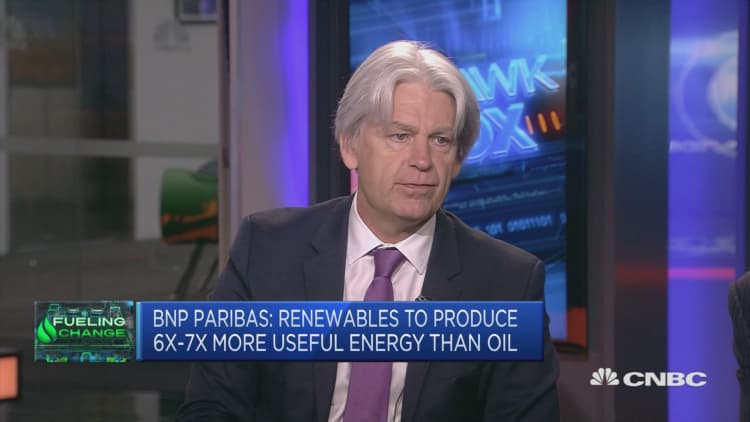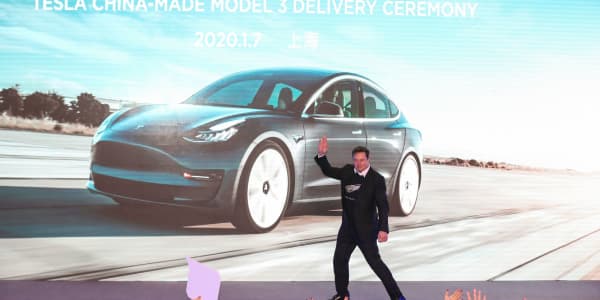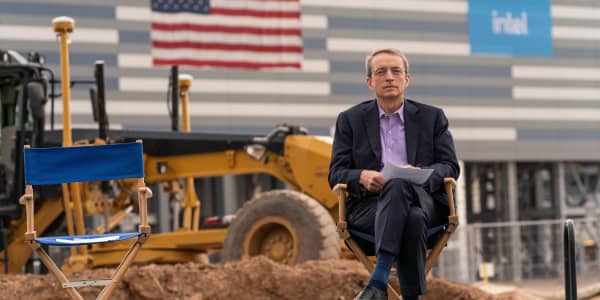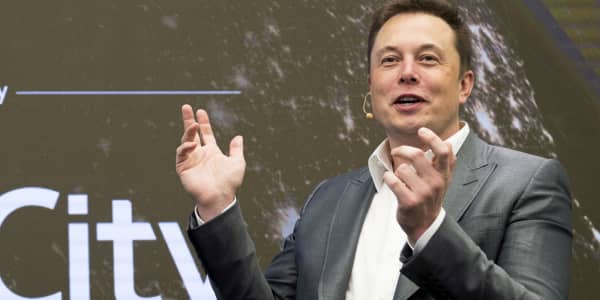Christy Meurer wanted to do her part to fight climate change — and if she saved a few bucks, that would be nice, too. When the 41-year-old teacher from Missoula, Montana, went looking for a place to buy wind-generated electricity, she quickly found her way to a start-up whose model may point the way to the future of U.S. power: Arcadia Power, which uses software to match clients with renewable-energy providers across the country.
"I pay a little more to get full wind power,'' Meurer said, who signed up with Arcadia in December 2017. "But it's so important to me that it's worth an extra $5 a month, or whatever it is."
Four-year-old Arcadia Power, based in Washington, D.C., was created to give consumers an easier way to connect with more than 40 of the hundreds of alternative electricity providers that have sprung up around the country, said CEO Kiran Bhatraju, a former aide to Kentucky Democratic Congressman John Yarmuth.
Most alternate providers produce wind or solar energy, often on a small scale, and connect with consumers through utilities, many of which allow, but do little to encourage, customers to buy electricity from alternative suppliers, or through brokers like Arcadia.
"In a lot of cases, we're the first green option a customer has had," Bhatraju said. "It doesn't break down politically. People want choice, and they want it to be similar to the power they've had. A good number of Republicans believe in clean air and competition. These are things Americans agree on.''
The Expedia of energy providers
Arcadia's experience is familiar to anyone who has bought a flight at Expedia.com or shopped for car insurance at sites like Progressive.com, which offer quotes from more than one airline or insurer, said Nat Kreamer, chief executive of the trade group Advanced Energy Economy.
If Arcadia has a renewable power-generating partner near where a consumer lives, they'll make the match to the best deal and keep monitoring the customer's account in case cheaper alternatives emerge. The company says its average customer enrolled in its Smart Rate program saves 5% to 20% on electric bills, as Arcadia finds and negotiates lower rates with suppliers, and savings can hit 40% in states including Illinois and Maine.
If renewable power isn't locally available, Arcadia will match the client to a conventional power source and buy for them a renewable-energy certificate, which finances new renewable-power projects that aim to save as much carbon as the client uses from power fired by fossil fuels. For example, Meurer's power actually comes from her local utility, Arcadia says, but part of her bill is used to finance wind projects in Oregon.

"The interesting thing about Kiran's business is that most people don't think a lot about electricity," said Kraemer, adding that Arcadia is among the top 10 sellers nationally of power not generated by utilities themselves. "They've built an experience that lets people take care of their power simply.''
So far, Arcadia's direct-to-consumer platform integrates with more than 40 alternative-energy providers who do renewables, and it has signed up 300,000 customers in all 50 states. Arcadia has raised $40.5 million of venture capital from sources including New York-based Box Group, co-founded by David Tisch, the grandson of the late real estate legend and CBS CEO Laurence Tisch; and G2VP, a Silicon Valley greentech investment firm spun off from Kleiner, Perkins Caufield & Byers in 2017.
Clean-energy use is on the rise
Clean energy's share of U.S. electricity consumption is rising rapidly, according to government data, and renewable electricity in particular was a key element of the U.S. government's strategy under President Barack Obama to combat climate change.
Renewable fuels will likely power 18% of U.S. electricity this year and reach 19% in 2020, the U.S. Energy Information Administration says. Production of renewable power in the U.S. has doubled since 2008, but trails the 24% of power the International Energy Agency says is generated from renewable sources in developed nations as a whole.
In April the amount of U.S. electricity from renewables passed the proportion of juice produced by burning coal for the first time, EIA says — 23% vs. 20%. Coal represented half of U.S. generation as recently as 2005. Growth in renewables has been driven by rapid construction of wind-powered electricity turbines, itself accelerated by federal tax credits and state regulations requiring utilities to produce or distribute renewable power.
In a lot of cases, we're the first green option a customer has had. ... People want choice, and they want it to be similar to the power they've had. ... Digitizing energy, giving people access to clean energy, is a giant trend.Kiran BhatrajuCEO of Arcadia Power
April's numbers were higher than EIA's projections for the year, and EIA chalked up the big springtime number partly to seasonal factors — many coal plants are used less or not at all in temperate months when demand for electric-fired heating and cooling is lower.
Last year about 15 gigawatts of new wind and solar power was put into service, EIA says, and 47 gigawatts of coal-fired utility plants have been closed since 2015, giving brokers like Arcadia more sources of renewable energy to buy and sell.
A lot of renewable power, and especially solar, comes from moderately-sized community projects like those run by Summit, N.J. based Nautilus Solar Energy LLC. Arcadia is already big enough to help partners of Nautilus' size completely sell out solar-generation projects as they come on line, said Eric LaMora, a structuring manager for Nautilus.
Arcadia matched 730 customers to a new 3.5 megawatt Nautilus-built solar project in West Greenwich, Rhode Island in less than three months, LaMora said. That's slightly more than the project's estimated capacity, he added.
Arcadia stands out among brokers because of an easy-to-use phone app and clear billing service, LaMora said.
"We've signed them up for additional projects in Rhode Island and we're negotiating in New York," LaMora said. "Our plan is to use them as much as possible.''
There's "no reason there can't be millions of customers on the platform," Bhatraju said. "Digitizing energy, giving people access to clean energy, is a giant trend."
That may be true, Meurer says. But the thing she likes most is Arcadia's online tracking estimate of how much carbon emission she's prevented by supporting wind power using her 800-sq.-ft. home: She just crossed 2 tons, a fact she thinks her elementary school charges could well emulate.
"I do everything I can to be a good example to them,'' she said.





